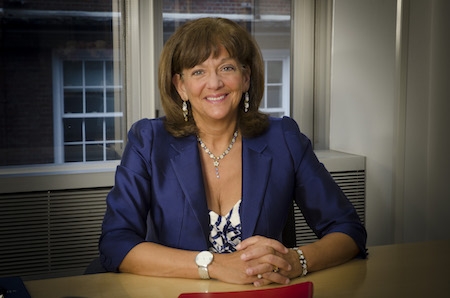A female director at a pension firm says men are often forgotten in discussions about retirement age reforms, amid the campaign for fair treatment on state pensions for women.
The issue has shot to prominence this year due to the efforts led by Women Against State Pension Inequality. WASPI said that “retirement plans have been shattered with devastating consequences” following the 1995 Conservative Government’s Pension Act.
Baroness Altmann, in quitting as Pensions Minister at the weekend, claimed the Government had failed to adequately deal with the “hardship facing women” arising from the reforms.
Elaine Turtle, director of DP Pensions, told Financial Planning Today it was important to look at the changes from the perspectives of both men and women.
She said: “Fair treatment for women has been a key focus for Ros and this is where I have to disagree – it should be fair treatment for all. I don’t believe that we should ever have had different retirement ages and we mustn’t forget that men are also having their retirement ages changed but they are often forgotten in these discussions.
“I was asked what age I thought we should have for retirement and I suggested 62, it is a good age for both men and women but government wanted this to be higher and we have ended up with 67. It is really important that retirement age changes are not just seen as a women’s issue but about changing ages.”
WASPI agrees with equalisation, but says it doesn’t agree with the “unfair way the changes were implemented”.
The group’s Parliamentary petition collected nearly 200,000 signatures and therefore triggered a debate in the House of Commons in February.
In her resignation letter to Theresa May, Baroness Altmann highlighted the women’s state pension age as one of three key issues the Government needs to address.
She said: “I am not convinced the Government adequately addressed the hardship facing women who have had their state pension age increased at relatively short notice. They were not adequately informed. I also believe we must devote resource to widely communicating and publicising the coming changes to state pension age for both men and women.”
Claire Trott, head of pensions technical at Talbot and Muir, said: “I do agree that communication can be better with regards to state pensions but I do feel that if someone was really planning their retirement around their state pension then they would have been more engaged with what was happening to it.
“I do feel that there if we are trying to remove discrimination in this world then we can’t pick and choose who is impacted, I have spent my career dealing with both positive and negative discrimination and dislike both immensely.”
The Department for Work and Pensions issued a statement after the petition, which read: "The policy decision to increase women’s State Pension age is designed to remove the inequality between men and women.
"The cost of prolonging this inequality would be several billions of pounds. Parliament extensively debated the issue and listened to all arguments both for and against the acceleration of the timetable to remove this inequality.
"The decision was approved by Parliament in 2011 and there is no new evidence to consider."

